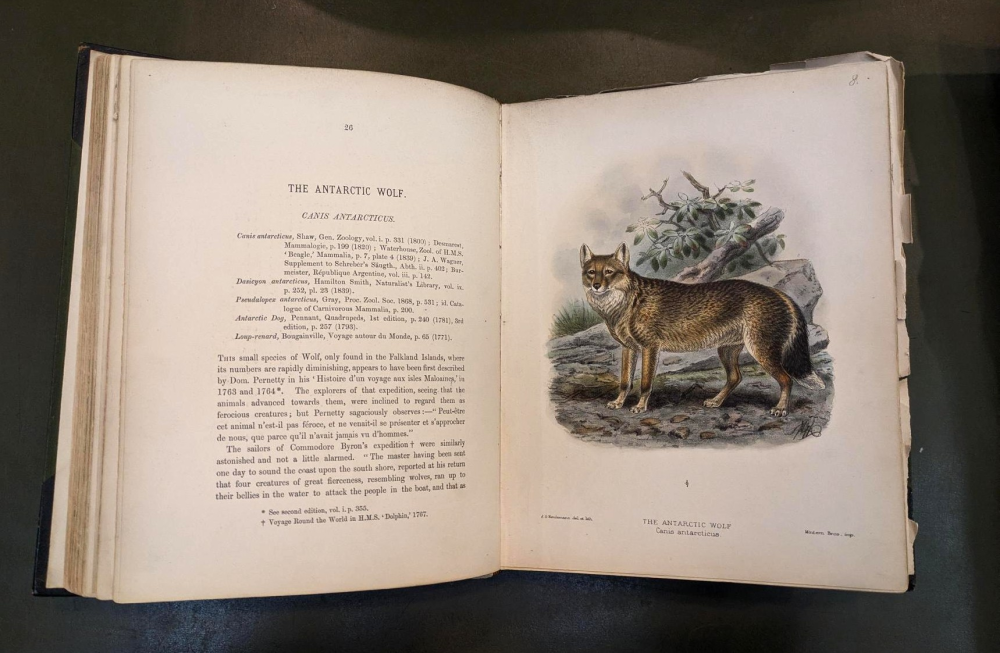The Falkland Islands, now famous for its sheep, was once home to just one native mammal: the Falkland Islands “wolf”. I crack out “these guys” because we’ve since learned that these strange, tame creatures weren’t wolves at all, but the final stronghold of a curious species of domesticated fox that started out in South America.
The rest of this article is behind a paywall. Please sign in or subscribe to access the full content.
These strangely fearless and friendly foxes survived in the Falklands for 250 years longer than the original population back in South America. That is, until something terrible came along (spoiler alert: it was us).
At first, we thought the Falkland Islands fox was a wolf. Then, when we realized it was, in fact, a fox, it was thought to be a unique species that diverged from South American foxes around 16,000 years ago. Now, new research is rewriting the story again, as it reveals that these foxes were actually the final surviving population of a group that was domesticated in South America.
We’ve found archaeological evidence in human graves to suggest that foxes were kept as pets by hunter-gatherers in South America before even domesticated dogs came along. As the population spread to a new home in the Falkland Islands, it maintained that lack of fear towards humans, which became a fatal error when European settlers arrived in the region in the 17th century.

Drawing of the Falklands Island Wolf (at the time called Canis Antarticus, The Antartic Wolf) by J.G Keulemans, published 1890 in Dogs, jackals, wolves, and foxes a monograph of the Canidae.
Image credit: ZSL Library
Charles Darwin was among the few humans who got to meet the Falkland Islands wolf. It was his deduction that their isolation was what made them so unafraid of humans, and that it would likely condemn them to the same fate as the extinct dodo. He was right in that they did become the first known canid whose extinction is directly attributable to humans, but he was wrong as to why it was they were so friendly.
“When settlers from Europe first landed on the shores of the Falklands, they were met by a strangely tame, tawny-coloured wolf-like creature – about the size of a small Labrador,” said Professor Samuel Turvey, lead author and researcher at ZSL’s Institute of Zoology, in a release emailed to IFLScience. “Just like the famous dodo, it was thought that millennia of evolution sheltered from the fear of any natural predators had resulted in this creature that was completely unafraid of people, but the reality was more complicated – and more tragic.”
“The friendliness that made this canine an easy target for hunters was not due to a lack of contact with humans, but because they once lived alongside us. This isn’t just a heartbreaking twist to an already tragic story. The finding fundamentally shifts our understanding of what drove this species to go extinct – and has wider implications for our knowledge of human-caused extinctions today.”
Those domesticated foxes in South America are known by the species name Dusicyon avus, meanwhile the Falklands Islands “wolf” has been known by D. australis, and it’s the recommendation of the team behind the new paper that D. avus be renamed to the scientific name D. australis. This new understanding that they were the same species rewrites the story of how this curious fox came to be extinct, and could help us to better prepare for future extinctions.
“We can’t bring the Falkland Islands wolf back, but its story helps us save the wildlife still with us today,” said Turvey. “By refining our baseline for assessing the vulnerability of species to extinction, this finding allows us to become even better at predicting how threatened species respond to human pressures, and how to plan conservation action as effectively as possible.”
The study is published in the Biological Journal Of The Linnean Society.
Source Link: Friendly Falkland Islands “Wolf” Was Actually The Last Stronghold Of A Fox Domesticated In South America